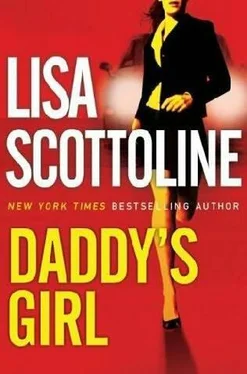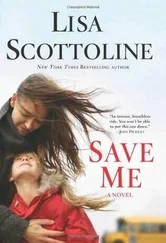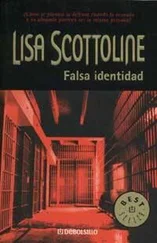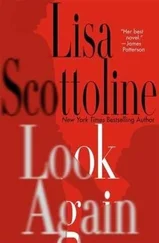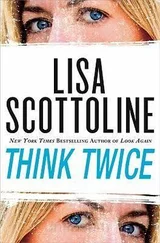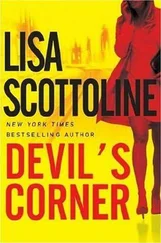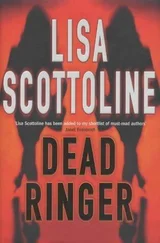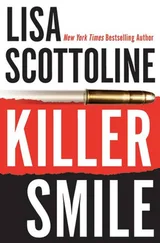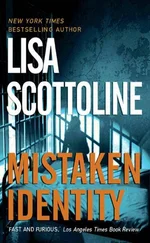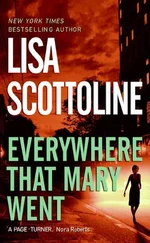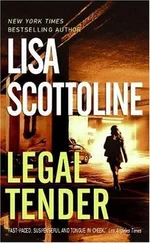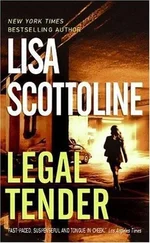"I know that." Hank spat into the sink, turned on the water, then moved onto his bicuspids. Five, six. "I still think he's a loser."
Ouch. "Why?"
"The beard? The ponytail? He's a joke."
Nat reached over and turned off the water.
"Why do you do that?" Hank frowned, buzzing his teeth. Seven, eight, nine. "You always do that when I brush."
"Because you take a long time to brush your teeth, and it wastes water to run it while you're brushing."
"You're worried about the water bill now?" Hank moved onto the next tooth and turned the water on again. "I'll pay you."
"That's not the point. It's the waste. It's all the water we have on the planet." Nat turned the faucet off, hard, and Hank looked down at her as if she were nuts.
"Babe, the planet, as you put it, is like, 99% water. We could never run out of water."
"It's still a shame to waste it. Don't you care about anything bigger than yourself?"
"Fine." Hank spat into the sink, switched off the toothbrush, and shoved it, unrinsed, into the plastic caddy. "I think that accident scrambled your brains."
"Thanks."
"Sorry, but you've been in a foul mood all night. At your folks house. Here."
It was true, and Nat knew it. "Excuse me, but I was in a car accident."
"How about I give you some time alone?" Hank asked. "Why don't I go to my place tonight?"
Nat paused. She knew this routine by heart. They rarely fought, but when they did, it was simply separate and reconvene the next day, as if nothing had happened, at which point one or the other of them would say they had been tired, that's all.
"Well, Nat? Your call. You want me to go?"
No. Yes. No. Yes. "Okay, fine."
"Good." Hank brushed past her, banged around in the bedroom getting his clothes and sneakers, and trundled back into the hall half dressed. "Call you tomorrow," he said as he left.
Nat heard the door close, with a new note of finality.
"You wanted to see me?" Nat asked from the threshold of Vice Dean McConnell's office. He'd left her a voicemail in the morning and shed come straightaway, deja vu all over again.
"Yes, please, do come in." McConnell gestured to the chair shed occupied last time, which Nat was starting to think of as hers. She sat down, brushed off her black wool dress, and crossed her legs in the black suede boots that added three inches to her height-and her confidence. She suddenly understood the appeal of cowboy boots.
"Thanks. Good to see you."
"I'm so sorry about the accident that you and Angus were in. It's been a difficult week for you. Both of you." McConnell leaned back in his old-fashioned leather chair. The window behind him overlooked Sansom Street, busy with passersby hurrying to work on this cold, gusty morning. Wind blew through the brittle tree branches, threatening to snap them like dry wishbones. Or maybe it was just Nat's state of mind. McConnell asked, "How is Angus? I haven't heard from him since last night."
"I'm not sure." Nat felt unsettled. She didn't like thinking of Angus in the hospital alone. "I called this morning, but there was no answer in his room, and they wouldn't give me any info over the phone, since I'm not family."
"He had some internal injuries, I understand."
"Yes. We'll know the extent today."
"Well." McConnell set some papers aside. "That's not why I wanted to speak with you. I got a call from the warden about you and Angus. Apparently, you two made inappropriate inquiries to a corrections officer regarding prison operations." McConnell consulted some handwritten notes on a legal pad. "A Tanisa Shields?"
"Huh? We didn't make any inquiries of her."
"So the warden is incorrect? There was no questioning?" McConnell frowned.
"We spoke, but it wasn't a questioning. It was a conversation."
"Nevertheless, she has been placed on suspension as a result."
"She didn't do anything wrong." Nat felt terrible. She'd gotten Tanisa in trouble after all.
"You lack standing, Nat. We don't operate the prison."
"But she's being punished for nothing."
"You're missing my point." McConnell's gaze hardened behind his bifocals. "The warden has requested that neither you nor Angus be permitted back into the prison, until further notice."
"What? He can't do that." Nat took it like a blow, for Angus. "He teaches that class, and there are prisoners with active cases."
"The warden has contacted Widener Law School, which agreed to take over the pending cases."
"But Angus cares about those prisoners. His class. They know him. They love him there."
"They'll get to know another lawyer. Clients change representation all the time." McConnell eased back in his chair, eyeing her as if from a great distance. He wore the same suit as yesterday, with a different rep tie. "May I speak personally to you?"
No. "Yes."
"It's almost your tenureship year, Nat. We'll begin meetings soon. Evaluations are being gathered as we speak." McConnell hunched forward again. "I've read your articles on legal history and I've always thought of you as one of our finest young legal scholars. We value true scholarship on this faculty. We're one of the best law schools in the country, and we made our reputation on the excellence of our academic credentials, not our clinical programs."
Thank you? Nat didn't like getting props at Angus's expense.
"I admit I didn't appreciate your seminar the other day, the dressing up and such. It's not my cup of tea. But I understand the need to be relevant. I'm not a relic."
Uh, yes you are.
"All this running around, at a county prison." McConnell sniffed. "This isn't like you, Nat. Not at all."
"Maybe I'm changing." Who said that?
"You may want to reconsider the wisdom of that, dear. Particularly at this juncture in your career." McConnell smiled politely, and Nat got the message.
Stay outta Chester County.
"Let me tell you a story," Nat began, standing on the stage before her seminar class. It was her third class of the day, but she felt amazingly energized, still jiggered up after her meeting with McConnell. She'd tried to reach Barb Saunders and Angus again, but no dice. For the time being, she set it aside.
"One day in January, 1962, a prisoner in a Florida jail sat down with a pencil and paper to write a letter. He was fifty-one years old, white, poor, self-educated, a drifter, and by all accounts, stubborn to a fault. He'd been convicted for breaking into the Bay Harbor Pool Room in Panama City, Florida, and stealing money from the cigarette machine and jukebox."
Anderson tapped away on her laptop, as did Carling, Chu, Gupta and Wykoff.
"Wait a minute, stop typing." Nat raised a palm. "Everybody stop typing and look up. It's a story. Just listen."
Anderson lifted her gaze, as did the others, one by one, reentering.
"Good. Thanks. As I was saying, the prisoner couldn't afford a lawyer, so at the trial, he asked the judge to appoint one for him. The judge said no and told him that under the law, the poor were entitled to a lawyer only in capital cases or in exceptional circumstances. The judge was right, because that was the law at the time. So the prisoner defended himself at trial, making an array of mistakes, such as calling as his witness the very police officer who had arrested him. He was convicted and sentenced to five years."
Wykoff frowned, and Chu blinked. Warren's hand never strayed to her keyboard, for IM-ing. Kewl.
"But the prisoner studied law books in the prison library, and no matter how many times the inmate read the Sixth Amendment, he couldn't square it with the judge's refusal to give him a lawyer. So he wrote his own habeas petition to the Florida Supreme Court, which was denied, and then, undeterred, he handwrote a letter to the U.S. Supreme Court itself."
Читать дальше
